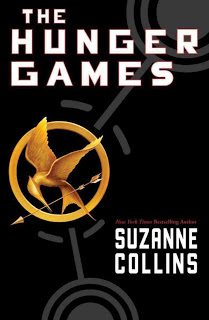Romance Readers Speak

Romances are the largest fiction genre, and like all novels, chiefly are sold through word of mouth. But reading is usually a solitary act. Quite the contradiction, isn’t it? Unlike the Victorians, who liked to gather in their parlors and read Charles Dickens’ novels aloud, we read alone. Then we blab to our friends and relatives about the merits and demerits of what we have read. If enough of us read the same book and talk it up a lot, the book becomes a phenomenon. Then people who might never have considered picking it up feel they ought to, to see what we’re so excited about. The Hunger Games is a perfect example. Most adults don’t cruise the teenage section of a bookstore, whether it’s a bricks-and-mortar store, or an online shopping mecca. Yet once this teen novel gained traction through word of mouth, lots of us thought we should read it. And of course once it became a movie, there was even more pressure to follow the herd and check out Katniss Everdeen and her adventures. The ads for the movie sparked additional interest in the book.
How we learn about books is not necessarily in the social or indirect manner I’ve just described. We also see ads for them, get e-mails about them, see reviews for the same books over and over, and so on. And we go prowling for books, too. But as much as authors and their publicists, and publishers and the media want to know what influences buying and reading decisions, it’s often a mystery. Not much major media advertising is ever dedicated to selling romance novels, either, which deepens the mystery. That’s why the survey romance writer Marie Force put on Survey Monkey is so significant.
The Internet has changed many people’s buying and reading habits. Has it also changed our method of finding romances we want to read? Or deciding what we will buy and read? These are two different things, after all. In the past, we might have gone to a bookstore, or borrowed a book from a friend, and we still might do that for a printed book, but we don’t usually buy ebooks in physical bookstores, and we can’t borrow an ebook from an individual very easily (we’d probably have to borrow an electronic device, too). If we hunt for the book online, that action exposes us to many commercial efforts to catch our attention. Just as a physical bookstore has display dumps strategically placed near the entrance, so websites selling books don’t merely show us the book we’re seeking. They show us lots of books similar to that book, or they show us every other book they publish that’s a romance, or they show us completely unrelated ads for anything and everything. The vagueness of our knowledge about exactly how and why people buy romances is proportional to the many ways to obtain a romance novel.
We don’t know the number of people who were asked to take Marie Force’s survey, but of those polled, there were 2,951 responses. This is an impressive number. Open-ended responses number in the hundreds, which is even more interesting. Compare these results to the political polls taken during election campaigns: they frequently only sample 300 people. (No wonder they predict elections incorrectly. The sheer numbers involved in this romance reading survey give it unusual heft and make these results checking out. If you’re strictly a romance reader and not a romance writer, you might wonder, why bother? But I’ll bet you’re curious to see what other romance readers think about starred book reviews, ebook price points, and more. I know I am.
